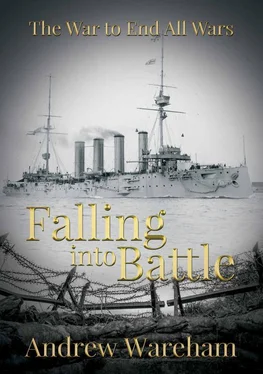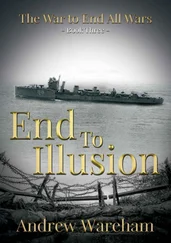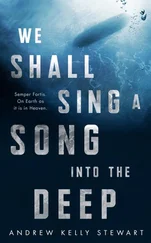Simon laughed – it seemed typical of the builders not to consider the matter of actually sailing the ship.
“They had wanted low funnels to reduce the profile, give her a better chance of closing the enemy line without being seen. Logical, I suppose. Mind you, with the battle ensigns flying from the after mast, we would hardly be invisible.”
“Yes, sir – that is a point to consider. Why have a pair of masts on a destroyer?”
“The Admiralty still likes masts, Sturton. They have no function these days, except for signals, for which you need a single mast stepped on the bridge. Wireless aerials as well – they can run off the one mast, not that we have a wireless ourselves. Destroyers don’t need them – we will always be in company with a squadron or fleet, can use flags or lights.”
The Admiralty was still not comfortable with the new wireless sets – they much preferred the trusty old ways of signalling.
“Make yourself familiar with the boat before we leave the yard, Sturton – you know the basics, I don’t doubt.”
“Two hundred and forty-six feet in length, sir, and a beam at maximum of twenty-five feet. Drawing eight feet and six inches. Speed is lower than it might be at twenty-seven knots. Deep load of nine seventy tons with one hundred and seventy tons of oil in the bunkers.”
“Well done. Undergunned, compared with the latest German boats.”
“Very much so, sir. Is there any intention of shipping machine guns to the bridge wings, sir? I heard some mention of that last year for all destroyers.”
“Possibly – still being considered. The bridge would be cramped for space if they did.”
“Can’t ship them on the forecastle, sir, not and use them at any speed.”
“No. The class has the raised forecastle in front of the bridge, but it’s insufficient and we will still ship it green at more than twenty knots; possibly less – we will see. What’s for sure is that you’ll never fire that gun of yours at any speed. From all I have seen, she’ll look more like a submarine than a surface ship if there is anything of a swell. I am told that the next class will have a forecastle at least two feet higher, which will mean a raised bridge and problems of stability, so broader in the beam and drawing more – a bigger ship entirely.”
Simon tried to assimilate that information, sorting through to discover how it affected him.
“Ready-use ammunition for the gun, sir. How will that be protected?”
“There’s a locker, but I doubt it is sturdy enough. I suspect you will end up keeping the rounds below decks, immediately under the hatch, ready to pass up to the gun as needed.”
That would be slow and would require extra men in the supply chain from the magazine. Tall men, at that, who could actually lift the charges and shells high enough for the gun crew to bend down and grasp them.
“It would be easier if we had fixed charges, sir, and a quickfirer to use them.”
“Planned for the next class, I am told. QF is the way to go. Doesn’t matter too much if fixed charges with a brass case get wet. Separate charges in a silk bag must be protected, however.”
“It is not the ideal design for a ship, perhaps, sir.”
“No, but it is all an Admiralty that still hankers after sail and broadsides will tolerate. They don’t like oil and won’t put money into developing the diesel engine, as they should. Geared turbines make good sense, but again, they have to be developed and the Admiralty won’t put its own money into the process. Shipbuilders won’t spend cash on building an engine that will be of use only in warships – if the Admiralty wants them, they can pay for them is their opinion. As a result, we slip behind Germany and possibly the United States. Damned foolishness on the part of the old men who infest the Admiralty!”
Simon nodded gravely. Sublieutenants did not disagree with anybody in the wardroom, because everybody was senior to them.
“What is the provision for the mess and catering, sir?”
“Not much! Three of us in total, you, me and the commissioned gunner – we can hardly set up a mess table with silver plate and official guests. All unofficial – we drop cash to the steward, who acts as our cook as well, and I will buy in a few bottles. The Gunner will be short of cash – commissioned gunners always are, no private income for men brought up from the lower deck – so we won’t make a fuss about it. Put in ten bob a week, officially. I shall add another couple of quid, because I can afford it, all on the quiet.”
“My trustees have made my income over to my use, sir, now that I have my commission. I could match you if that is appropriate.”
Simon reached into his pocketbook and produced two banknotes, fivers drawn on the Provincial Bank.
“The first month, sir. I haven’t got the quarter in my pocket but I can draw it in town tomorrow.”
“Well done. I’ll stock up our cellar and pass the rest to the steward.”
It was all very casual, quite unlike St Vincent where mess bills had been the cause of deep discussion and debate. The wardroom there had had a wine committee to determine what vintages could be bought. Even the midshipmen in the gunroom had been able to organise extras for their mess; it had not been a poor ship. Poverty-stricken mids might go to cruisers but never to a dreadnought or one of the old smart battleships where they would be an embarrassment; an income was necessary on the greater ships. It was much like the army in that respect – a private income was essential to an officer if he was not to be relegated to obscurity.
“Leaving dock or mooring, Sub, you will take the stern flag. You know procedure?”
“Check the cables and wires are clear of screws and rudder as they are dropped or picked up, sir. Green flag to signify all clear to move.”
“Just so. The captain will want a quick signal but don’t raise the green flag until you are certain it is safe. Better to delay sailing by a couple of minutes than to give the go-ahead and foul a screw.”
Simon had performed the task several times on St Vincent . It should be easier on a destroyer where he was so much closer to the waterline and everything was more easily visible.
“We are not leaving harbour so no need to dress ship. Report to the bridge when we have way.”
“Aye aye, sir.”
Sheldrake slipped smoothly to the fuelling berth and alongside to take in stores and then, last of all, to the powder hulk – the old name retained for no good reason – to refill the magazines, emptied on entering the dockyard. Two days and Captain Smallwood notified the Port Admiral that Sheldrake was in all ways ready to sail. The Captain of the Dockyard made his formal inspection – the Admiral himself would not stir out of his office for a mere destroyer – and Sheldrake received her orders.
Last of all, an hour before they were due to sail, the commissioned gunner arrived aboard.
Dacres met him at the brow and gave him an irritated welcome.
“Expected you before this, Mr Bains.”
“Beg pardon, sir. My name is Harker. Mr Bains fell in front of a tram and lost a leg, sir. Two days ago. On his way from the railway station – by way of a couple of pubs and a hotel, I am told sir. Might not survive, I am told.”
“Bad luck for him, Mr Harker! Not for us from the sound of things – drunken gunners are not my favourite form of seagoing life. Nor the captain’s! Where did you come from? Lucky for us that you were available.”
“I was drafted from Penelope cruiser, pierhead jump, you might say. They are sending a boat with my gear, sir.”
Penelope had moored two hours previously, in from three years on the China Station.
Читать дальше












